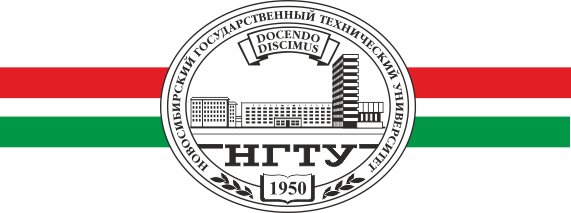Code of Ethics of the journal "Analysis and data processing systems"("Scientific Bulletin NSTU") is a set of rules on which to build relationships of authors, editors and reviewers in the review process and the publication of articles.
Ethics code of the journal "Analysis and data processing systems" is a set of principles forming the base for relations between authors, editors and reviewers during evaluation and publication of papers. Following this ethic rules by all participants ensures authors’ intellectual property rights, improves the quality of the publication in the eyes of professional community and eliminates a possibility of illegal use of authors’ materials to the benefit of particular individuals.
Editorial code is based on the recommendations of Committee on Publication Ethics (COPE)(http://publicationethics.org)
Code of ethics of scientific publications and combines reveals the general principles and rules that should govern the relations of participants in the process of scientific publications: authors, reviewers, editors, publishers, distributors and readers.
Editorial board code of ethics
- Editorial board must consider all the papers presented for publication without any prejudices about the authors, with unconditional respect for their rights to intellectual property.
- If the author is a member of the editorial board, he/she must delegate his/her rights in terms of consideration of the paper to another qualified person.
- Editorial board conducts preliminary selection and review of presented papers during a month from the date of their reception and reserves the right to accept a paper, reject it or send it for revision.
- Editorial board reserves the right to choose the review method (open, anonymous) and the number of reviewers in order to ensure unprejudiced review of the paper. Nobody but individuals involved in paper assessment can have access to its content.
- Editorial board informs authors about the acceptance of the paper via email. If the paper is rejected or sent for revision, the editorial board must present to the authors adequate substantiation of such a decision.
- Published materials cannot be reproduced fully or partially without preliminary consent statement of the authors and the Editorial Board. A reference to the source is necessary if the paper is cited or distributed on the internet.
- Information contained in unpublished paper can be used only with the authors’ consent.
- If there is evidence of inaccuracy in published materials, the editorial board must publish an announcement of the mistake signed by the persons who discovered it.
Author’s code of ethics
- Authors shall be individuals who made a substantial contribution to the formulation and solving of the problem discussed in the paper and share responsibility for the achieved results. The author sending an article to the editors’ office takes responsibility for the other authors’ agreement to publish it.
- Authors of the article are responsible for authenticity of contact details and for originality of presented materials. These materials must not be published earlier or sent for parallel publication in other editions and must not contain plagiarism. Violation of these obligations is the reason for rejecting the article.
- Authors of the article are responsible for potential damage or conflict of interest connected to the article publication. The editors’ office can reject the article if it violates rights of a third party, norms of scientific ethics and confidential information. The author and organization that sent the article will be informed about it.
- Authors of the article must give in the limited volume (6-8 pages) an objective assessment of the problem in question based on adequate analysis of earlier publications related to this work, show the meaning of the achieved results, and give an exact description of proposed methods of solving the problems and potential difficulties connected to their application.
- Authors must scrupulously and within the time limit set by the editors’ office correct the drawbacks marked by the editorial board or a reviewer which determines the possibility of the paper publication.
- An article series where results of a complex research are published must be organized in the way that gives the reader an overall understanding of the research as a whole and of each aspect illustrated in a respective article.








